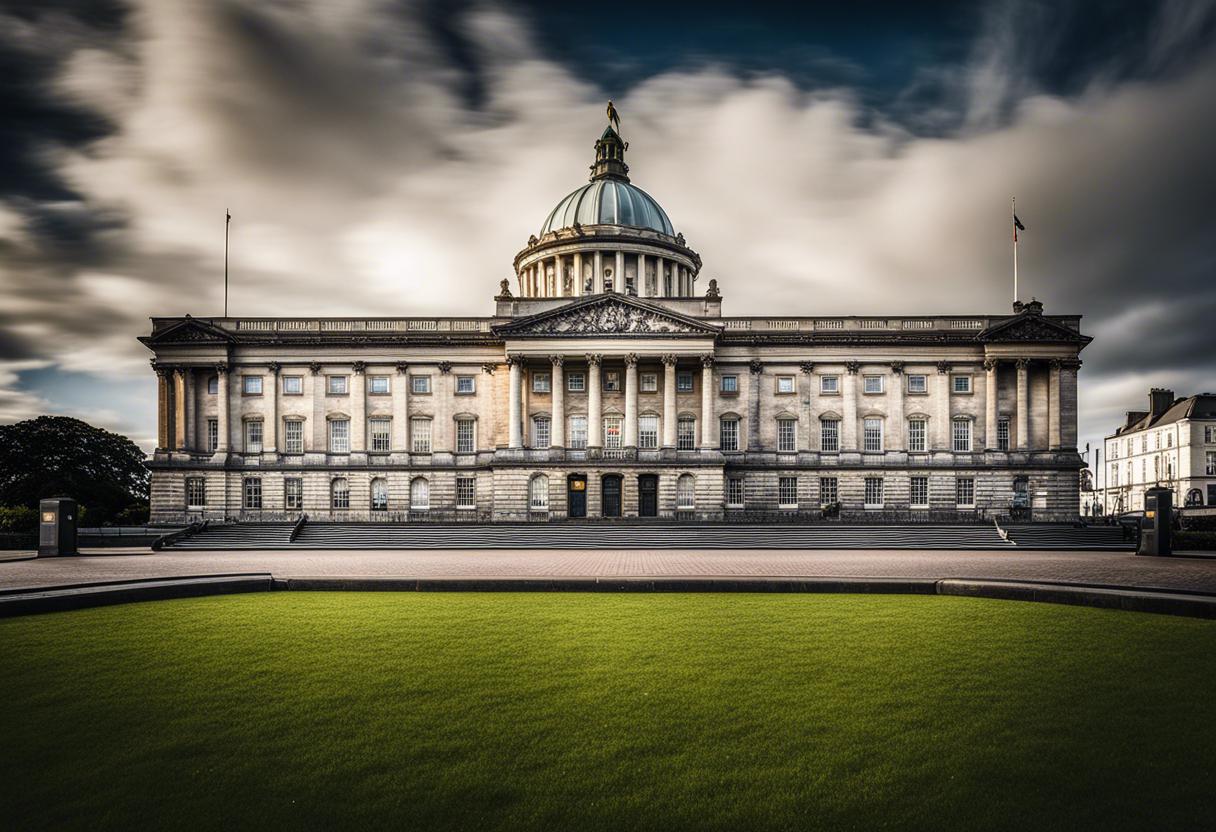A disagreement over attempts made by Solidarity TD Mick Barry to discuss the verdict of the Director of Public Prosecutions (DPP) concerning the lethal shooting of 27-year-old George Nkencho, led to the suspension of the Dáil. Ceann Comhairle Seán Ó Fearghaíl cautioned Mr Barry, emphasising that the principle of separation of powers prohibits members from making critiques or remarks about court-related affairs or DPP in the House.
Barry had brought up the Nkencho case in a session of Leaders’ Questions. Barry mused that Nkencho’s grieving family, who are working-class immigrants, now face a laborious challenge for justice and access to basic information. His remarks followed Nkencho family’s move to challenge the DPP’s ruling.
Mr Barry, who represents Cork North-Central, drew attention to the State’s recent apology to the families impacted by the Stardust tragedy. He noted that while the gesture was commended and there were pledges of ‘never again’, it appears that the State is replicating its past errors.
The Ceann Comhairle responded, emphasising the independent status of the courts and the DPP and insisting that their actions are not up for commentary in the House. Barry disagreed, maintaining that members must not be barred from discussing topics of widespread public significance. However, Ó Fearghaíl held firm to his stance, reminding Barry that no one in the chamber has the right to comment on actions, statements or decisions by the courts or the DPP.
While acknowledging the tragic loss of the Nkencho family, Ó Fearghaíl reiterated that the House would not debate on the DPP’s decision. Even as Barry presented the case as a benchmark of State performance, the Ceann Comhairle indicated that his approach should be altered.
Mr Barry made a statement, expressing his view that the 2024 version of Ireland, specifically Dublin, is not a welcoming place for immigrants or individuals of colour. He referenced a racist protest that had impacted the city in the recent past, and also mentioned an incident several weeks prior where a foreigner was killed for speaking his native tongue. Furthermore, he queried the message that is sent out when such cases are not brought to trial.
Mr Ó Fearghaíl interfered again, firmly stating his disapproval of Mr Barry’s discourse, stating “No, No, No we’re not going to have more of this”. After numerous interruptions, Mr Barry was told that he was not going to violate the revered principle of the separation of powers and that these standards are applicable to all 160 TDs. Despite Mr Ó Fearghaíl’s multiple attempts to restore order by asking Mr Barry to return to his seat, Mr Barry defied these requests leading to the suspension of the House.
Later on, when the House resumed, Mr Barry conceded agreement that George Nkencho should not have been killed. He requested for the release of the Gsoc report, which followed an investigation spanning two and a half years. He articulated that this report encompasses hundreds of testimonies, video evidence, and considerable content which is currently inaccessible to the Nkencho family.
Mr Barry conveyed concern about the growing alienation among young people of colour from the state. He highlighted the need for this issue to be acknowledged and addressed, and predicted that recent events would intensify this sense of alienation.
Minister for Agriculture, Charlie McConalogue, filled in for the Tánaiste and stated that the Nkencho family were informed by the Gsoc about their rights to a summary of the reasons for the decision not to prosecute, together with their right to request a review of that decision. He confirmed that the Gsoc would make its investigation’s essential details publicly accessible when other statutory procedures permit.

